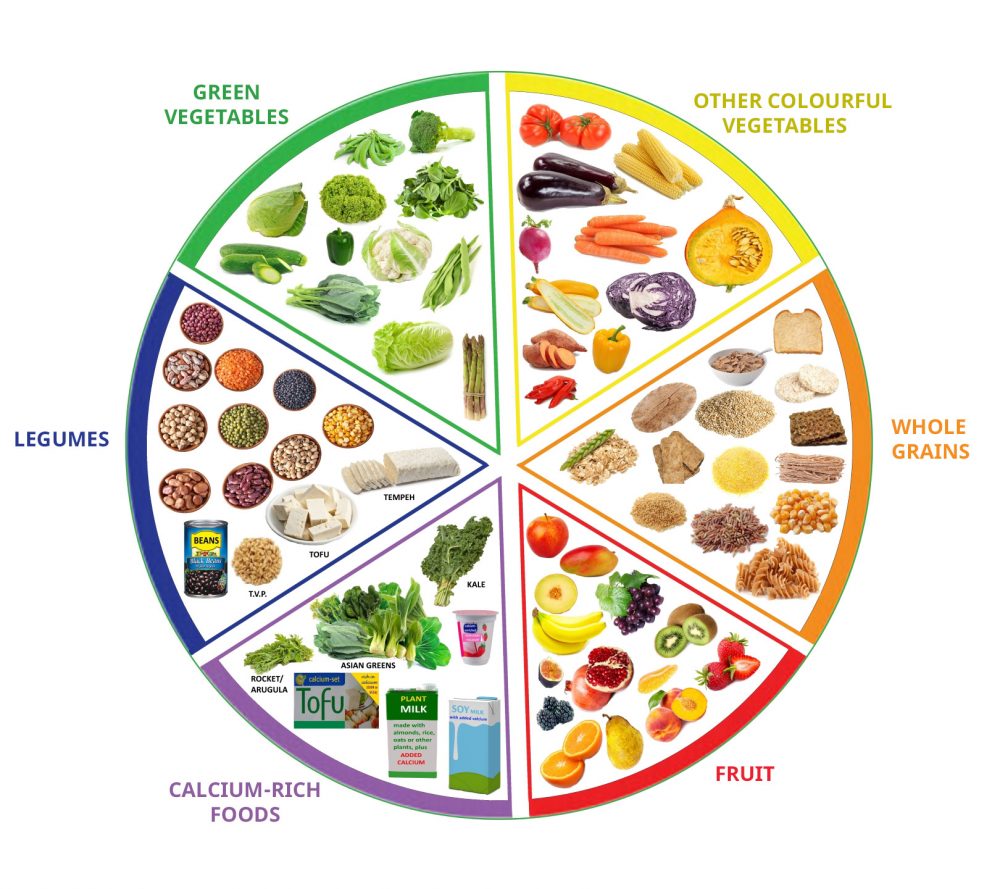Why plant-based is the optimal diet for fitness and health
From professional athletes to exercise enthusiasts, people are thriving on plant-strong diets all around the world.

above (left to right): mountaineer Dr Robert Gropel, olympic runner Izzi Batt-Doyle, powerlifter Noah Hannibal.
Whether motivated by ethics and/or goals ranging from improved general fitness, endurance, muscle building and strength training, to quicker recovery and reduced inflammation, there are so many reasons athletes are making the switch to being fuelled by plants. An increasing number of elite athletes have excelled in their field of sport, citing a plant-based diet as playing an important role in their successes.
Here are just some of the many top-level athletes who adhere to plant-strong diets to enhance their performance and longevity in their sport:

- Racing Driver Lewis Hamilton
- Strongman Patrik Baboumian
- Olympic Runners Morgan Mitchell and Izzi Batt-Doyle
- Cricketers Kane Richardson, Adam Zampa and Peter Siddle
- Surfing Champion Ella Williams
- Pro Tennis Player Novak Djokovic
- Olympic Weightlifter Kendrick Farris
- Soccer Player Alex Morgan
- World Champion Powerlifter Ryan J Stills
- Rock Climber Steph Davis
- Bodybuilder Torre Washington
- Ultra Marathon Runners Budjargal Byambaa, Fiona Oakes and Scott Jurek
- Triathlete Brendan Brazier
Numerous studies have demonstrated that eating a diet rich in plants is better for our general health, with a strong correlation to reducing the incidence of chronic diseases. A plant-based diet is endorsed by national health bodies including the Australian Government’s Dietary Guidelines, Dietitians Australia and the Academy of Nutrition and Dietetics. As the world’s largest organisation of nutrition professionals, the Academy of Nutrition and Dietetics affirms that, “vegan diets are healthy and nutritionally adequate…during all stages of the life cycle” and “may provide health benefits for the prevention and treatment of certain diseases.”
When following a vegan diet with a focus on minimally processed foods, the science shows there are several health benefits, including:
Better heart health
Prevention and treatment of type 2 diabetes
Improved kidney function
Protection against certain cancers (prostate, breast, colorectal, ovarian)
Reduction of pain from arthritis
Improved gut bacteria
Promotion of mental wellbeing
Appropriate physical activity coupled with a well-balanced vegan diet, has demonstrated positive outcomes for:
building muscles and strength training
General Fitness and Health
While it’s commonly accepted that heart health is affected by both diet and physical exercise, evidence-based literature indicates that diet is the most influential lifestyle factor in relation to general wellbeing and a healthy heart, more so than exercise. In Dr Katharina Wirnitzer’s review of Vegan Diets in Sports and Exercise, she explains that a, “daily intake of one cup of beans, chickpeas or lentils over 90 days has been shown to reduce the resting heart rate (-3.4 bpm) by the same amount as exercising for 250 hours on a treadmill.”
When looking at becoming more fit or taking up a new form of physical activity for health, it’s important to pair your exercise with a well-balanced vegan diet as this can help you achieve your optimum level of fitness.
A healthy plant-based diet that is rich in essential nutrients consists of eating from the six plant food groups daily and including a reliable source of Vitamin B12:
- Whole grains – e.g. brown rice, rolled oats, quinoa, barley, wholemeal pasta, whole grain bread
- Legumes and soy products – e.g. lentils, chickpeas, kidney beans, pinto beans, black beans, lima beans, borlotti beans, cannellini beans, navy beans, soya beans, tofu, tempeh
- Green vegetables – e.g. spinach, rainbow chard, bok choy, broccoli, cabbage, asparagus
- Colourful and starchy vegetables – e.g. carrots, pumpkin, squash, sweet potato, corn
- Fruit, nuts and seeds – e.g. kiwi fruit, oranges, berries, mango, pineapple, almonds, walnuts, Brazil nuts, flaxseeds (ground), chia seeds, sunflower seeds
- Calcium-rich foods – e.g. Asian greens, rocket/arugula, kale, figs, tahini (ground sesame seeds), fortified plant milks
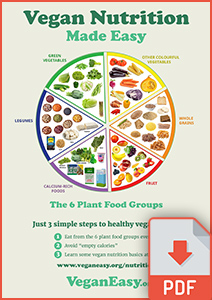 Download a handy printable poster
Download a handy printable poster
Take to Officeworks and print at A3 size
Consuming a variety of these food categories provides all the amino acids, calcium, and other essential nutrients our bodies need. It is important to include a reliable source of vitamin B12 in the form of supplements and fortified foods. For those over 50, whether vegan or not, accredited dietitian Dr Amanda Benham recommends supplementation because the ability to absorb B12 from food reduces with age. If you’re not getting enough sun exposure daily, regardless of diet, vitamin D supplements may also be required. Always ensure you are basing your existing levels and any potential supplementation and monitoring requirements in consultation with a registered healthcare professional who can tailor advice to your specific needs.
A Note About Soy
Soy is a nutrient-rich food that contains all of the essential amino acids as well as a variety of vitamins and minerals. A common myth associated with this legume is that it contains high amounts of estrogen and may affect men’s testosterone levels. However, this is simply not true. Soy contains phyto-estrogens, which are compounds that naturally occur in plants. Studies have shown that phyto-estrogens have no impact on the reproductive hormones of men or women. Further information can be found in our articles about soy for men and women.
Endurance

For endurance athletes, like long distance runners, cyclists, rowers, swimmers and triathletes, not only does a plant-based diet cover all nutritional needs, but it can impart an advantage over competitors when it comes to heart health, performance and recovery.
In an article published in the journal Nutrients, a team of researchers led by Dr Neal Barnard of the Physicians Committee for Responsible Medicine, reported that endurance athletes, particularly as they age, are more prone to atherosclerosis and cardiac events in comparison with inactive people. This discovery was revealed in a United Kingdom study where coronary plaque was found in 44% of middle-aged and older endurance athletes, compared with 22% in sedentary subjects. The review by Dr Barnard and team established that plant-based diets play a significant role in heart health by reversing plaque and reducing blood pressure and cholesterol.
Healthy vegan diets coupled with moderate exercise are also known to decrease body fat. This is associated with the improved ability to use oxygen to power movement, leading to better endurance. Since glycogen (predominantly from carbohydrates) is the primary energy source during aerobic activity, a minimally-processed carbohydrate and fibre-rich diet offers athletes the sustaining fuel they need.
Other physiological attributes of plant-based diets that contribute to enhanced performance and recovery found by the study in Nutrients, include:
- reduced blood viscosity and improved tissue oxygenation, which helps more oxygen reach the muscles
- lower oxidative stress due to higher antioxidant intake
- reduced inflammation, since various plant compounds have anti-inflammatory effects
Building Muscle and Strength Training
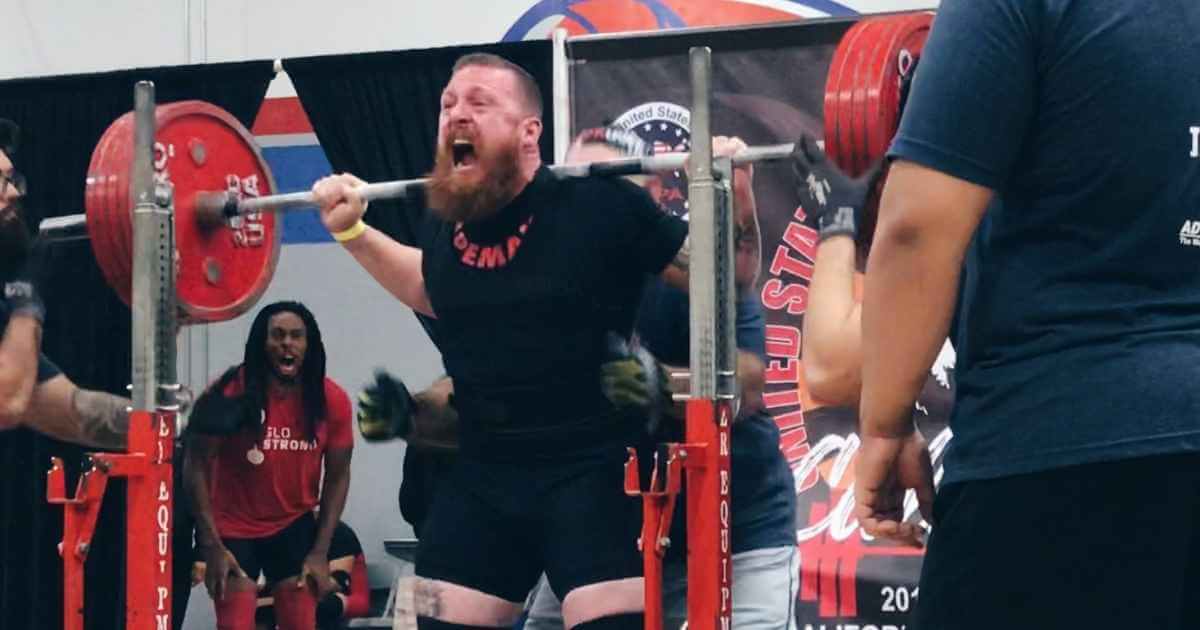
If your goal is to train to gain muscle and develop strength, figuring out how much of the macronutrient protein you will need can be helpful. Each person’s goals will be unique, however based on the current scientific literature the nutrition recommendations for building muscle are:
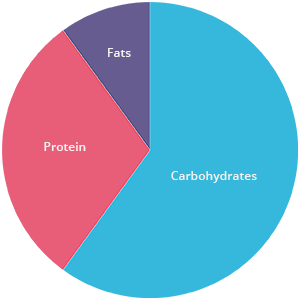
- Protein: consume 1.6-2.0 grams of protein per kilogram of bodyweight per day. For vegan strength athletes, consume 1.8-2.2 g per kg of bodyweight. This is because protein requirements for vegans are often 10-20% more than non-vegans. For a detailed explanation, read this article by sports dietitian Leah Higl.
- Divide into optimal amounts of 0.40-0.55 g/kg per meal and distribute evenly throughout the day over 3-6 meals, including within 1-2 hours of pre- and post-training.
- Fat: consume in moderate amounts (0.5-1.5 g/kg/day).
- Carbohydrates: consume ≥3-5 g/kg/day, enough to support energy demands from resistance training.
Likewise, it’s important to make sure you’re on the right muscle building program. If your goal is to become a competitive bodybuilder or powerlifter or simply to gain more strength be sure to consult with a qualified and experienced professional to help you devise a suitable training program.
Of course, when it comes to building muscle on a plant strong diet, most people will want to know about sources of protein.
Consuming various plant foods in sufficient calories can easily provide all of the essential amino acids required for building muscle mass. Amino acids are found in all foods. Plant sources include lentils, beans, chickpeas, tofu, tempeh, quinoa, grains, nuts, seeds and vegetables – especially dark green leafy produce. When vegans include a wide variety of protein sources in their diet, they also benefit from the wide range of micronutrients available in these foods. Athletes may need to be more mindful of the overall protein quality of their chosen source.
A sample menu for one day could look something like:
- Breakfast – mushroom and spinach tofu scramble and wholemeal toast
- Lunch – wholewheat burrito wrap with black beans, veggies, tomato salsa and avocado
- Dinner – stir fry with tempeh, mixed greens, other veggies and brown jasmine rice mixed with quinoa
- Snacks – smoothie with greens, banana, berries (can add protein powder); mixed nuts; protein bars/balls (e.g. made with medjool dates, hemp seeds, peanut butter, protein powder, cocoa powder)
- Drink plenty of fluids, particularly water
If you are new to vegan eating or have changed your fitness goals, you may want to consider tracking your macronutrient intake (protein, carbohydrates, fat) with an app for the first few weeks to ensure you are consuming the recommended amounts.
For a more comprehensive look at vegan protein requirements, check out this article by sports dietitian Leah Higl.
Faster Recovery

Inflammation is the body’s immune response to an injury, a foreign artefact, like a thorn in your finger, or germs. It is part of the body’s natural process for protecting and healing itself. For athletes and fitness enthusiasts, inflammation can occur after an intense or prolonged workout, which can lead to delayed onset muscle soreness (DOMS).
Managing inflammation is critical to optimise recovery time and enhance athletic performance. Quicker recovery times between workouts and healing faster from sporting injuries can be assisted through quality nutrition. A whole food plant-based diet helps to reduce inflammation due to:
- the antioxidant content of plants
- the absence of pro-inflammatory fats and other inflammatory compounds
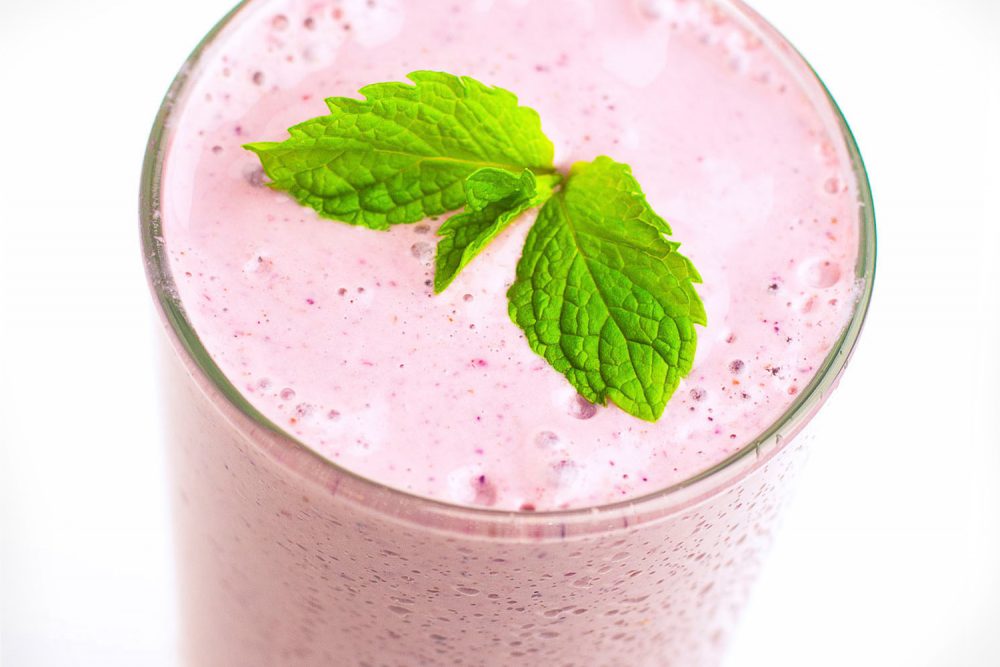
More specifically, the review of plant-based diets for heart health and endurance sports published in Nutrients found that foods high in antioxidants like blueberries, blackcurrants, tart cherries, pomegranates and watermelon, were effective in decreasing post-workout inflammation and accelerating recovery.
Conversely, a diet that is animal-based contains pro-inflammatory compounds, which for an athlete is undesirable and will impede performance and recovery.
Some post-workout anti-inflammatory snacks or meals could be:
- Fruit smoothie with blueberries, ground flaxseed, turmeric powder, soy/nut milk
- Rolled oats with chia seeds, berries, nuts and plant-based yoghurt
- Bowl of steamed sweet potatoes, black beans, quinoa and spinach drizzled with lemon tahini sauce
- Curried chickpeas with mixed vegetables and brown rice
- Salad wrap filled with tofu, hummus, tomato, cucumber, leafy greens and fresh coriander
